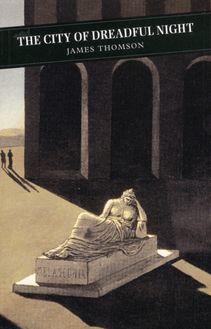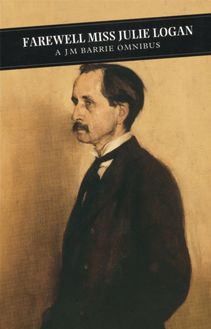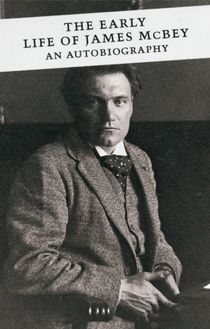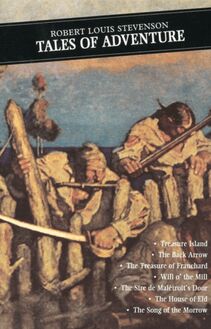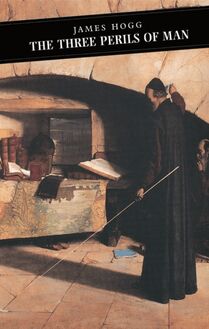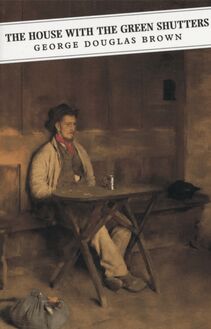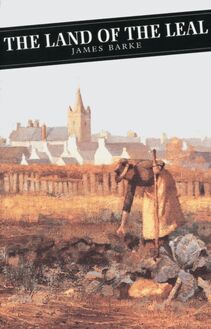Before Burns , livre ebook
253
pages
English
Ebooks
2010
Vous pourrez modifier la taille du texte de cet ouvrage
Obtenez un accès à la bibliothèque pour le consulter en ligne En savoir plus
Découvre YouScribe en t'inscrivant gratuitement
Découvre YouScribe en t'inscrivant gratuitement
253
pages
English
Ebooks
2010
Vous pourrez modifier la taille du texte de cet ouvrage
Obtenez un accès à la bibliothèque pour le consulter en ligne En savoir plus
Publié par
Date de parution
01 juillet 2010
Nombre de lectures
3
EAN13
9781847674661
Langue
English
Publié par
Date de parution
01 juillet 2010
Nombre de lectures
3
EAN13
9781847674661
Langue
English
Contents
Introduction
Note on the Texts
THE POEMS
Anonymous
Blythsome Bridal
Maggie Lauder
Tarry Woo
O This is No my Ain House
Whistle O’er the Lave O’t
Grizel Baillie (1665–1746)
Werena my Heart Light I Wad Die
Alexander Robertson of Struan (1668–1749)
Liberty Preserved, or Love Destroyed
William Hamilton of Gilbertfield (1670–1751)
The Last Dying Words of Bonnie Heck
Allan Ramsay (1685–1758)
An thou were my ain thing
The Lass of Peattie’s Mill
Polwart on the Green
A Song: Lochaber No More
Up in the Air
The Marrow Ballad
Lucky Spence’s Last Advice
Elegy on Lucky Wood in the Canongate, May 1717
Elegy on Maggy Johnston, who died Anno 1711
The Life and Acts of, or An Elegy on Patie Birnie
Elegy on John Cowper Kirk-Treasurer's Man
To the Right Honourable, The Town-Council of Edinburgh, the Address of Allan Ramsay
Epistle I [William Hamilton of Gilbertfield to Allan Ramsay]
Answer I [Allan Ramsay to William Hamilton of Gilbertfield]
Epistle II [Hamilton to Ramsay]
Answer II [Ramsay to Hamilton]
Epistle III [Hamilton to Ramsay]
Answer III [Ramsay to Hamilton]
Epistle to Robert Yarde of Devonshire, Esquire
Epistle to Mr John Gay
An Epistle Wrote from Mavisbank, March 1748, to a Friend in Edinburgh
An Ode to Mr Forbes
To R H B , an Ode
The Vision
The Gentle Shepherd
Robert Crawford (1695–1733)
The Broom of Cowdenknowes
The Bush Aboon Traquair
Alexander Ross (1699–1784)
Married and Wooed an’ A’
What Ails the Lasses at Me?
Billet by Jeany Gradden
William Hamilton of Bangour (1704–54)
The Braes of Yarrow
Inscription on a Dog
David Mallet (1705–65)
The Birks of Invermay
Alison Rutherford Cockburn (1712–94)
The Flowers of the Forest
Henry Erskine (1720–65)
Highland March
John Skinner (1721–1807)
Tullochgorum
Tobias Smollett (1721–71)
Ode to Leven-Water
William Wilkie (1721–72)
The Hare and the Partan
Jean Elliot (1727–1805)
The Flowers of the Forest
James Beattie (1735–1803)
To Mr Alexander Ross
Isobel Pagan (1741–1821)
Ca’ the Yowes to the Knowes
Alexander, Duke of Gordon (1743–1827)
Cauld Kail in Aberdeen
Hector Macneill (1746–1818)
The Scottish Muse
Michael Bruce (1746–67)
Weaving Spiritualised
Ossian’s Hymn to the Sun
Robert Fergusson (1750–74)
Auld Reikie, a poem
The Daft-Days
Hallow-Fair
Leith Races
The Rising of the Session
The King’s Birth-Day in Edinburgh
Epilogue, spoken by Mr Wilson, at the Theatre Royal, in the Character of an Edinburgh Buck
Braid Claith
Caller Oysters
Mutual Complaint of Plainstanes and Causey, in their Mother-tongue
The Ghaists: A Kirk-yard Eclogue
Elegy, on the Death of Mr David Gregory, late Professor of Mathematics in the University of St Andrews
Elegy on John Hogg, late Porter to the University of St Andrews
An Eclogue, to the Memory of Dr William Wilkie, late Professor of Natural Philosophy in the University of St Andrews
To Dr Samuel Johnson: Food for a New Edition of his Dictionary
To the Principal and Professors of the University of St Andrews, on their superb treat to Dr Samuel Johnson
Elegy, on the Death of Scots Music
The Sow of Feeling
Ode to the Gowdspink
On Seeing a Butterfly in the Street
The Farmer’s Ingle
Anne Lindsay (1750–1825)
Auld Robin Gray
John Tait (c. 1750–1817)
The Banks of the Dee
Elizabeth Hamilton (1758–1816)
My Ain Fireside
Joanna Baillie (1762–1851)
Wooed and Married and A’
Fy, Let Us A’ to the Wedding
Notes
Glossary of Common Scots Words
Introduction
It is necessary to begin by explaining why this anthology of eighteenth-century Scottish verse contains nothing by the greatest Scottish poet of the period, if not of all time, Robert Burns. It surely does not need to be said that no slight is intended to the immortal memory. On the contrary, it is because of the dazzling brilliance of Burns’s achievement and the brightness of his reputation that this collection omits him in order to bring to clearer view his contemporaries and immediate predecessors. Just as in a total eclipse of the sun the sky darkens so that lesser bodies whose light is usually lost in the solar glare become visible, so by a temporary and artificial occlusion of the star of Robert Burns may the lesser constellations of eighteenth-century Scottish poetry swim into our ken.
Not, to extend the simile a little more before dropping it, that all the other stars are so faint. Two at least, Allan Ramsay and Robert Fergusson, though their light fluctuates, are practically visible at all times, especially to those who know where to look. Too often, however, Ramsay and Fergusson have been located chiefly in relation to Burns, as his forerunners in what used to be called the vernacular revival of the eighteenth century. That phrase, with its implications of a teleology that condemns those before Burns to the role of humble harbingers, has dropped out of fashion. This anthology does not seek to revive it, since the notion that poetry grows towards moments of flowering in the work of a genius imposes a pattern on literary history which is more elegant and convenient than true or fair.
Nevertheless it is impossible to avoid some speculation about development and influence in introducing a collection of poetry spanning a century of verse. Poets as well as critics participate in the debate about literary history, and in the creation of its terms and periods. Allan Ramsay, for one, must be acknowledged as more than just a poet in his own right but also as a shaper of poetic history and tradition. Along with James Watson’s Choice Collection of Comic and Serious Scots Poems Both Ancient and Modern (1706–11), Ramsay’s collections of Scottish verse The Tea-Table Miscellany (1723) and The Ever Green (1724), which between them include much of the most significant Scottish poetry of the previous two centuries, plus much contemporary work, including poems by Grizel Baillie, Robert Crawford, William Hamilton of Bangour and of course Ramsay himself, establish a sense of a Scottish tradition of verse. Later poets, even down to our own day, must attend to the tradition which Ramsay helped to create, and they must also contend with the idea of the Scottish poet he outlined, both in his own practice and in the way he presented that of others. By editing and publishing what he could of the work of the sixteenth-century makars, and by imitating earlier poetry, as in his additional cantos to Christis Kirk on the Grene and in ‘The Vision’, Ramsay not only reminded his contemporaries of the past but showed how it might be the foundation of a modern poetry. His verse is always in dialogue with that of his predecessors as well as with his own time. His example fashions the mould for the ambitious Scottish poet from his time to our own by the way he acknowledges and incorporates the traditions of late mediaeval and renaissance Scotland while adapting them to the culture, and often the everyday culture, of his day. Above all, he is aware of what he is doing. His self-consciousness about his use of verse-forms and themes, and about his position in a poetical tradition, past, present and future, means that later poets have also to see themselves as heirs of an inheritance, and responsible to those who follow them; even if they want to rebel they must explain and justify themselves. Ramsay set out to create a national tradition in Scottish poetry and largely succeeded in bringing about the consciousness of one, if not the thing itself.
His success would have been more limited had he not had worthy followers, notably Robert Fergusson. Lamentably brief though Fergusson’s career was, he was quickly recognised as Ramsay’s successor in Edinburgh and his poetry is full of the same kind of awareness of tradition and its vitality found in Ramsay’s. He takes over the Christis Kirk stanza in ‘Hallow-Fair’ and ‘Leith Races’ and in turn makes it available to Burns, most notably in ‘The Holy Fair’. He also takes over the six-line stanza Ramsay names ‘Standart Habby’ in his answer to William Hamilton of Gilbertfield’s first epistle. Ramsay’s name for the stanza alludes to its use by Robert Sempill of Beltrees (1590–1660) in his humorous elegy ‘The Life and Death of Habbie Simson, the Piper of Kilbarchan’. Ramsay uses this stanza in his elegies for various low-life Edinburgh characters, and for ‘Lucky Spence’s Last Advice’, but also in epistles and an ode. Fergusson extends the range of the form further in poems of comment and observation like ‘The Daft Days’ and ‘Braid Claith’. In his turn, of course, Burns would use the stanza so extensively, from ‘To a Mouse’ to ‘Holy Willie’s Prayer’, that it became synonymous with him as ‘the Burns stanza’. It is a perfect illustration of how an eighteenth-century poetic development relates to a venerable tradition.
The establishment of tradition through the century after Ramsay is, however, only one aspect of the marvellous interconnectedness of poetic life in eighteenth-century Scotland. Even a cursory glance will discover how poets and poems have links to others. Poets write verse to each other and about each other. They mention other poets and imitate other poems. Their lives bring them into contact with each other and each other’s works, sometimes in surprising ways, but often in ways which make it clear how intimate and small was the world of Scottish letters in the eighteenth century. Some connections are obvious, such as that between Ramsay and William Hamilton of Gilbertfield, as evidenced by their exchange of verse letters. The tone of these is instructive, however. Both poets are courteous and complimentary, they take it for granted that to write Scots verse is a respectable accomplishment, they are humorous, even ribald, without embarrassment. Such easy-going literary conversat
